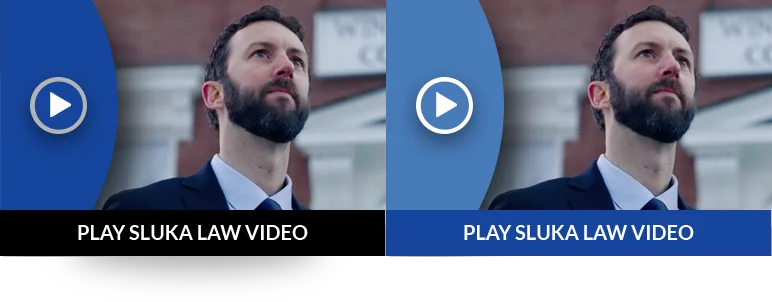Vermont Workers’ Comp Benefits Lawyer
Workers’ compensation benefits include a combination of medical benefits and wage replacement benefits, as well as other benefits such as vocational rehabilitation for those who need it. Vermont workers’ comp also pays death benefits to a worker’s family after a fatal work accident, injury or illness. It’s important to understand the different benefits that are available to you. Injured workers sometimes don’t get all that they are entitled to when the employer misapplies the law and underpays a claim, terminates benefits early, or wrongfully denies the claim altogether.
Below is a look at some of the benefits you may be entitled to as someone who was injured on the job. If you’ve been hurt at work and want to make sure you are getting all of the workers’ compensation you are supposed to receive, call Sluka Law for a free consultation with a knowledgeable and experienced Vermont workers’ comp lawyer.
Medical Benefits
Workers’ comp medical benefits are meant to be comprehensive. They include hospital expenses, doctor visits, prescriptions and over-the-counter medicines, physical therapy, chiropractic treatment, counseling, and other forms of medical care. They include nursing services and supplies and durable medical equipment if you need it. Medical benefits should also cover assistive devices to help you get around or function with a disability, including modifications to your home or vehicles. As long as the medical services and supplies are reasonable, necessary, and related to a work injury or illness, they should be paid for by workers’ comp.
Employers and their insurance carriers might push back and argue certain services aren’t reasonable or necessary or related to a work injury, which is why you need an experienced workers’ comp lawyer in your corner who can make sure you get the benefits you need and deserve.
Temporary Total Disability (TTD) Benefits
If you cannot work at all for a period of time after the injury, you can get TTD benefits which equal two-thirds of your average weekly wage, subject to minimum and maximum amounts. You can also receive $10 a week for each unmarried dependent child under 21 years old.
The first three days of disability are not paid for unless the temporary disability lasts for seven days or more, in which case all days are paid for. If you are still receiving TTD after 104 weeks, expect your claims to be carefully reviewed to determine whether you still qualify for benefits or not.
Permanent Total Disability (PTD) Benefits
If you are permanently and totally disabled by a work injury or illness, you can receive wage replacement at two-thirds of your average weekly wage for the duration of your disability and no less than 330 weeks. Some of the injuries that are considered PTD include:
- The total and permanent loss of sight in both eyes;
- The loss of both feet at or above the ankle;
- The loss of both hands at or above the wrist;
- The loss of one hand and one foot;
- An injury to the spine resulting in permanent and complete paralysis of both legs or both arms or of one leg and one arm; and
- An injury to the skull resulting in severe traumatic brain injury causing permanent and severe cognitive, physical, or psychiatric disabilities.
This is not an exhaustive or exclusive list. Your age, experience, training, education, and mental capacity are all considered to determine whether you are eligible for PTD benefits.
Temporary Partial Disability (TPD) Benefits
If you are able to work during the duration of a temporary disability at light duty or with work restrictions, you can receive TPD benefits of two-thirds the difference between your average weekly wage before and after the accident. TPD benefits start on the eighth day of disability.
Permanent Partial Disability (PPD) Benefits
If you are left with a permanent disability but can still work, you’ll receive PPD benefits calculated as two-thirds of your average weekly wages for a period determined by multiplying the percentage of “whole person impairment” by 330 weeks. The AMA guides are consulted for this purpose to determine your impairment rating.
Vocational Rehabilitation Benefits
If your workplace accident, injury or illness renders you unable to perform the work you are trained or experienced in, you could be entitled to vocational rehabilitation paid for by workers’ comp, including retraining and job placement reasonably necessary to get you back into suitable employment.
If accessing vocational rehabilitation benefits, your employer will be able to pick a provider from a state-approved list. If you are dissatisfied with this provider, you have one opportunity to pick another provider by providing written notice of your reason for dissatisfaction and the name and address of the new provider you choose. It is sometimes possible to switch providers more than once for good cause.
Death Benefits
Death benefits include actual burial and funeral expenses up to $10,000 and actual expenses for out-of-state transportation to the place of burial up to $5,000, as adjusted for inflation. Wage replacement benefits (two-thirds of the deceased worker’s average weekly wage) are also paid to the spouse, children or other dependents in accordance with Vermont workers’ compensation law (see our FAQs page for more details).
Serving Injured Workers Throughout Vermont
- Barre City
- Barre Town
- Bennington
- Brattleboro
- Burlington
- Colchester
- Essex
- Essex Junction
- Hartford
- Lyndon
- Middlebury
- Milton
- Montpelier
- Rutland City
- Shelburne
- South Burlington
- Springfield
- St. Albans
- Stowe
- Williston
- Winooski
Need Help With Vermont Workers’ Compensation Benefits? Call Sluka Law for Help.
If your employer or their workers’ compensation carrier is taking too long to approve your claim, if they are not paying you everything you think you are entitled to, or if they denied your claim or prematurely terminated benefits, call Sluka Law at 802-457-1000 for a free consultation. We take cases throughout Vermont, and we only charge a fee if we are successfully winning benefits for you.

